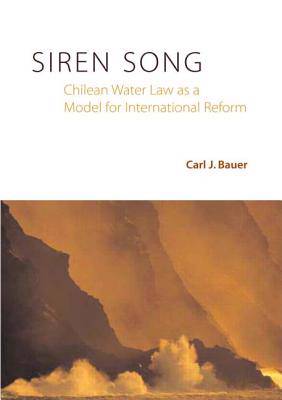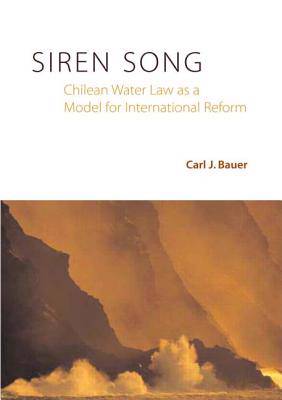
- Afhalen na 1 uur in een winkel met voorraad
- Gratis thuislevering in België vanaf € 30
- Ruim aanbod met 7 miljoen producten
- Afhalen na 1 uur in een winkel met voorraad
- Gratis thuislevering in België vanaf € 30
- Ruim aanbod met 7 miljoen producten
Zoeken
€ 141,95
+ 283 punten
Omschrijving
Increasing scarcity, conflict, and environmental damage are critical features of the global water crisis. As governments, international organizations, NGOs, and corporations have tried to respond, Chilean water law has seemed an attractive alternative to older legislative and regulatory approaches. Boldly introduced in 1981, the Chilean model is the worlds leading example of a free market approach to water law, water rights, and water resource management. Despite more than a decade of international debate, however, a comprehensive, balanced account of the Chilean experience has been unavailable. Siren Song is an interdisciplinary analysis combining law, political economy, and geography. Carl Bauer places the Chilean model of water law in international context by reviewing the contemporary debate about water economics and policy reform. He follows with an account of the Chilean experience, drawing on primary and secondary sources in Spanish and English, including interviews with key people in Chile. He presents the debate about reforming the law after Chile's 1990 return to democratic government, as well as emerging views about how water markets have worked in practice. The resulting book provides insights about law, economics, and public policy within Chile and lessons for the countries around the world that are wrestling with the challenges of water policy reform.
Specificaties
Betrokkenen
- Auteur(s):
- Uitgeverij:
Inhoud
- Aantal bladzijden:
- 172
- Taal:
- Engels
Eigenschappen
- Productcode (EAN):
- 9781891853791
- Verschijningsdatum:
- 21/04/2004
- Uitvoering:
- Hardcover
- Formaat:
- Genaaid
- Afmetingen:
- 163 mm x 243 mm
- Gewicht:
- 476 g

Alleen bij Standaard Boekhandel
+ 283 punten op je klantenkaart van Standaard Boekhandel
Beoordelingen
We publiceren alleen reviews die voldoen aan de voorwaarden voor reviews. Bekijk onze voorwaarden voor reviews.











